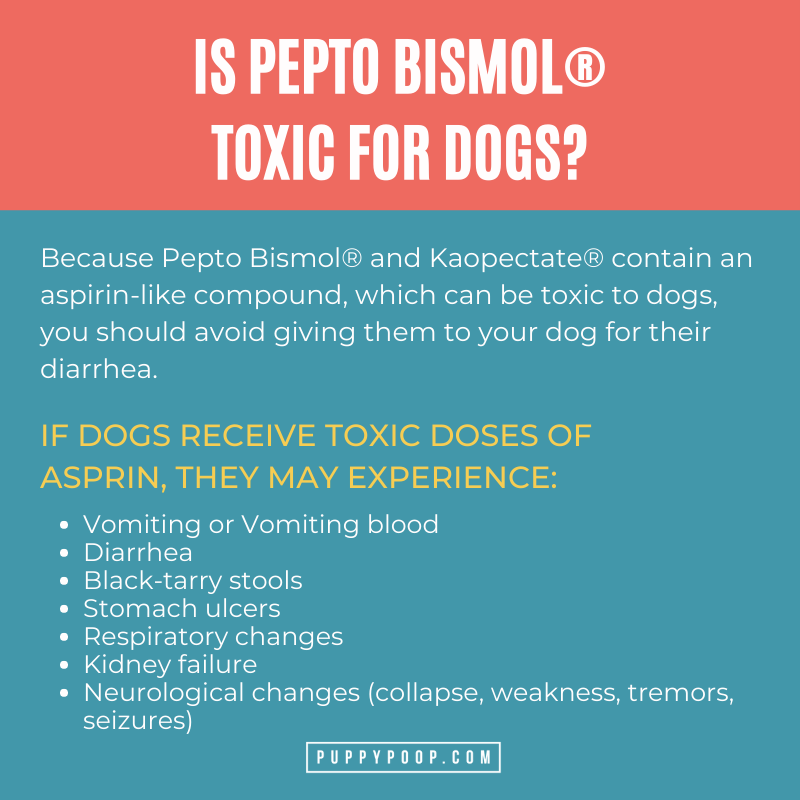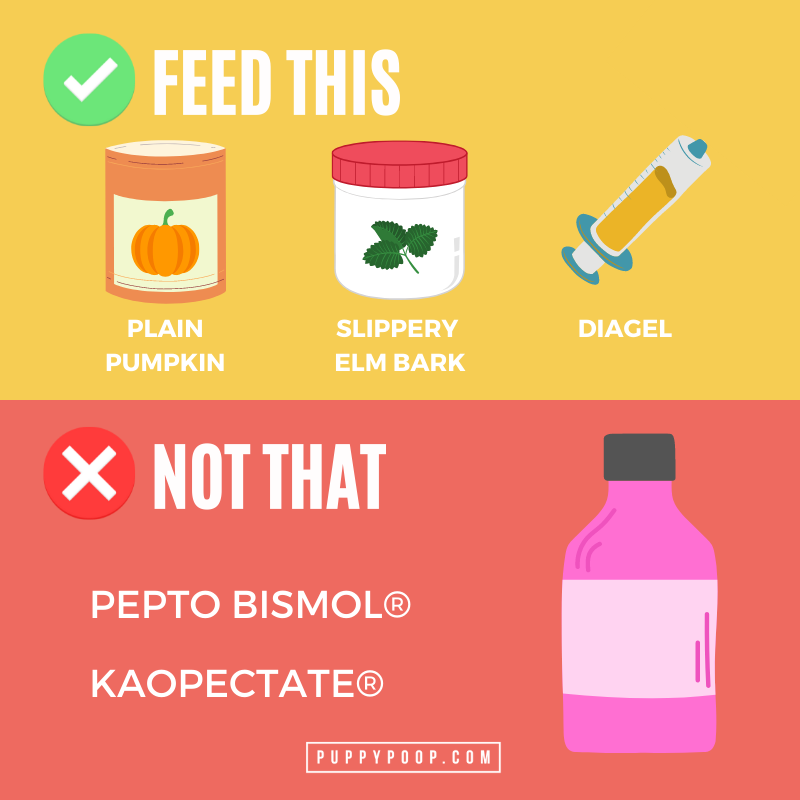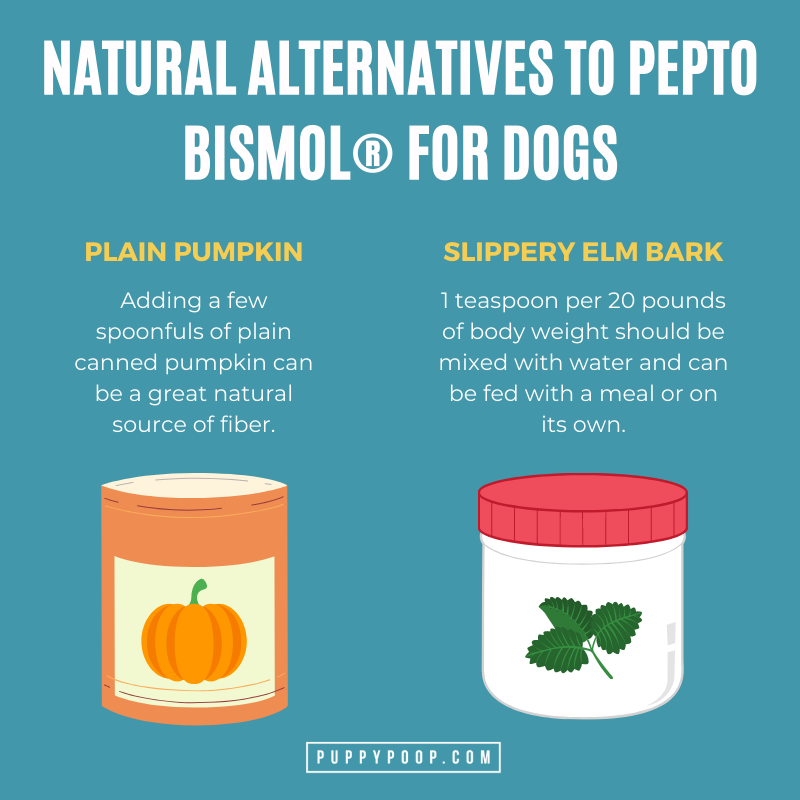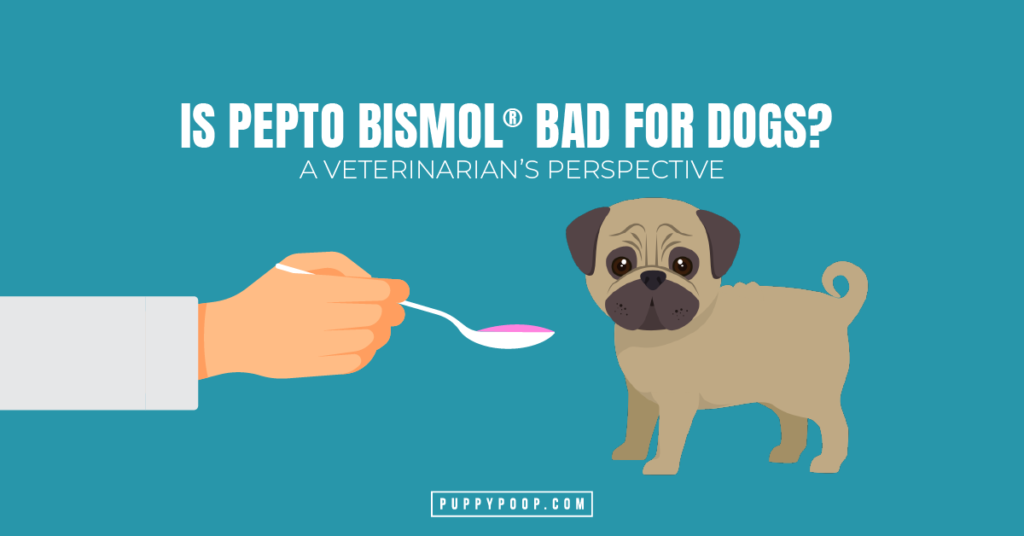Have you ever heard about Pepto Bismol® or Kaopectate® as a way to treat your dog’s digestive issues? It’s often questioned as an home-remedy for dog diarrhea. We know it’s hard to see your dog not feeling well when they have dog diarrhea, but Pepto Bismol® or Kaopectate® are not always the best home remedies for your dog’s digestive issues.
Because we as humans use it all the time, we also assume it is completely safe and effective for our dogs. But this isn’t actually the case, especially when used for long periods of time or in high amounts! There are several at-home remedies that you should try first for your dog’s diarrhea or loose stool.
What is Pepto Bismol® and how does it work?
Pepto Bismol® is the well-known pink over-the-counter human medication. It contains the active ingredient bismuth subsalicylate and is commonly used for diarrhea and other digestive issues in people. Pepto Bismol® stimulates fluid and electrolyte absorption and also reduces inflammation. The two main ingredients in Pepto Bismol® and Kaopectate® also have their own jobs:
- Bismuth is a chalk-like compound that can help to coat the gastrointestinal tract lining. In people, it reduces Helicobacter, the bacteria that causes stomach inflammation and ulcers.
- Subsalicylate decreases diarrhea that may be due to intestinal infections.
Is Pepto Bismol® bad for dogs with diarrhea?
After reading about how Pepto Bismol® works, it probably sounds like a good choice for your dog’s diarrhea. Although people can use it safely, Pepto Bismol® should not be your go-to at-home remedy for your dog’s diarrhea. It should only be used under the guidance of your veterinarian. Not only is it not the most effective medication for dogs, there are many other safer alternatives.
Some of the risks associated with Pepto Bismol(R) use in dogs include:
- One of the main ingredients, subsalicylate, can be toxic to dogs. It is an aspirin-like compound, which can be associated with gastric bleeding.
- Pepto Bismol® can also cause your dog’s stool to turn black. If this happens, it can be difficult to distinguish this from dark tarry stools (melena). This is worrying because melena signals gastric bleeding, a medical emergency for dogs.
- Pepto Bismol(R) tablets can be mistaken for metallic objects on radiographs. If your dog’s signs worsen and they need radiographs, this may lead to unnecessary procedures.

Is Pepto Bismol® toxic to dogs?
Because Pepto Bismol® and Kaopectate® contain an aspirin-like compound, which can be toxic to dogs, you should avoid giving them to your dog for their diarrhea. These compounds can also interact with certain medications and increase the level of aspirin in the blood. This is especially true if your dog is on non-steroidal anti-inflammatories (NSAIDs). Giving Pepto Bismol® or Kaopectate®, especially more than once or twice, can increase the chances of toxicity or negative side effects.
If dogs receive toxic doses of aspirin, they may experience:
- Vomiting. Vomiting blood can also occur. This may appear as red specks or something that looks like ‘coffee grinds’.
- Diarrhea
- Black-tarry stools
- Stomach ulcers
- Respiratory changes
- Kidney failure
- Neurological changes (collapse, weakness, tremors, seizures)

Many of the digestive signs seen with toxic doses of Pepto Bismol® are usually why Pepto Bismol® is used initially. This can make it confusing to tell if your dog is having a reaction or worsening digestive issues.
Before reaching for Pepto Bismol®, contact your veterinarian to avoid these potential risks. It’s best to let them decide if it’s the right choice for your dog and to also help you with dosing. Pepto Bismol® should also never be given to your cat, as they are even more sensitive to salicylates than dogs.
Safer At-home Alternatives to Pepto Bismol® for Dog Diarrhea

Pepto Bismol® may look innocent with that pretty pink color, but it has the potential to cause your dog more serious digestive issues. To ensure the healthiest, happiest life for your dog, avoid reaching in your human medicine cabinet. Instead, we recommend creating your dog’s personal first-aid kit. Stock up with our trusted puppy diarrhea must-have home remedies:
- Plain canned pumpkin. Adding a few spoonfuls of plain canned pumpkin, depending on your dog’s weight, can be a great natural source of fiber. It can help manage the absorption of liquid in the gastrointestinal tract and firm up stool. It’s super important to avoid canned pumpkin that includes added sugar or spices. Stick to 100% plain canned pumpkin.
- Slippery elm bark is one of our favorite at-home remedies for diarrhea. It is sometimes referred to as nature’s Pepto-Bismol, a safe anti-diarrheal for dogs. While Slippery elm bark is useful for many digestive issues, it is especially handy when there is mucus in your dog’s stool. Slippery elm bark coats the intestinal lining and helps to reduce inflammation. For best results, slippery elm bark (1 teaspoon per 20 pounds of body weight) should be mixed with water and can be fed with a meal or on its own. It should not be given within 2 hours of other medications because it can affect their absorption.
- DiaGel is a canine anti-diarrheal that is safe for our dogs, including puppies, due to its natural ingredients. It’s easily administered without mess by squirting the gel into the back of your dog’s mouth.
Dog digestive issues are bound to happen so don’t worry. Having a dog first-aid kit will make sure you’re prepared and ready to tackle any dog loose stools. Fido will be thanking you!
Get the DIG Labs App
Download the free DIG Labs Digestive Health Tracker to get personalized insights and recommendations for your dog based on their stool.

